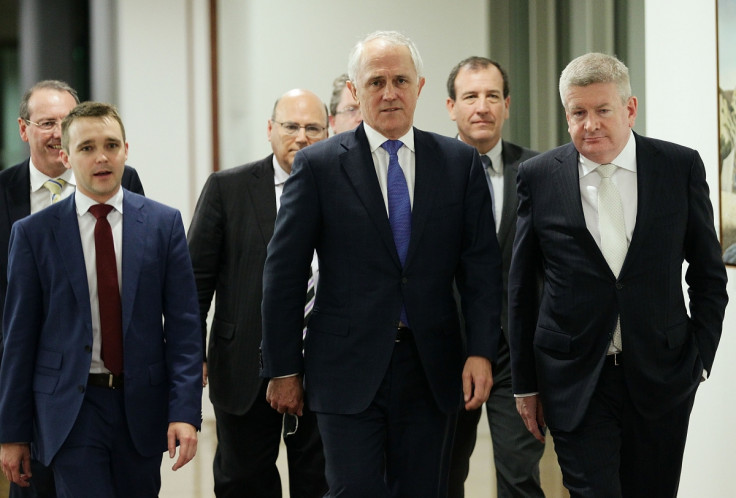Malcolm Turnbull will be Australian PM after ousting Tony Abbott as Liberal Party leader

Malcolm Turnbull is to become prime minister of Australia after ousting his long-term rival Tony Abbott from the leadership of the Liberal Party, following his victory in the leadership ballot, receiving 54 votes while Abbott got 44.
Julie Bishop, Abbott's deputy leader, retained her position. She had been in the running to become prime minister. Former communications minister Turnbull called for a dramatic internal poll on Abbott's premiership following prime minister's question time in Canberra.
The 60-year-old, who had previously been the leader of the opposition in 2008 and 2009, did not initially put his name forward for leadership but told Australian broadcaster ABC that he had been under pressure to do so.
"Now this is not a decision that anyone could take lightly. I have consulted with many, many colleagues, many Australians, many of our supporters in every walk of life," Turnbull was quoted as saying. "This course of action has been urged on me by many people over a long period of time."
Turnbull, more moderate than his sometimes controversial predecessor, is seen to have more appeal with traditional Labor voters, Australia's left-of-centre opposition party.
The leadership challenge is the latest episode in an increasingly unstable period in the country's normally knockabout national politics. Australia's Conservative coalition had been considered a consistent alternative to the country's Labor Party, which went through two turbulent leadership changes between 2007 and 2013.
The timing of Turnbull's leadership challenge has been seen to be particularly unhelpful, with analysts and commentators in Australia saying regardless of who emerges at the helm of the Liberal Party, it has suffered a self-inflicted wound.
© Copyright IBTimes 2025. All rights reserved.






















